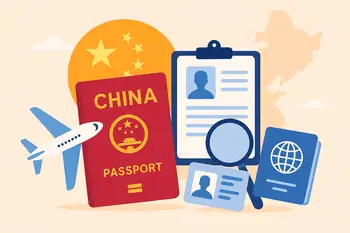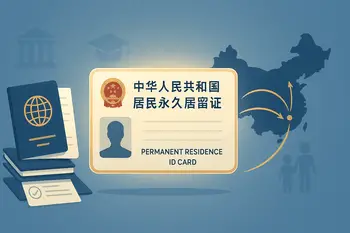
Moving to a new country is an exciting adventure, but it comes with its own set of challenges—one of the most important being securing adequate health insurance.
As an expat in China, navigating the healthcare system and understanding your insurance options can feel overwhelming.
This guide will walk you through the process of obtaining health insurance in China, ensuring you and your family are well-protected.
Understanding the Healthcare System in China
China’s healthcare system is a mix of public and private facilities, each with its own advantages and challenges.
Understanding how these systems work will help you decide which type of insurance is best for your needs.
1. Public Healthcare
- Public hospitals in China are affordable and widely available, especially in major cities. However, they can be crowded, and the quality of care may vary depending on the hospital and location.
- Challenges for Expats: Long wait times, limited English-speaking staff, and cultural differences can make navigating public healthcare difficult.
- Tip: If you plan to use public healthcare, consider hiring a translator or bringing a bilingual friend to help with communication.
2. Private Healthcare
- Private hospitals and clinics offer higher-quality care, shorter wait times, and English-speaking medical professionals. These facilities are often preferred by expats but come at a premium price.
- Tip: Many private hospitals in China, such as United Family Healthcare and Parkway Health, cater specifically to expats. Check if your insurance plan covers these facilities.
- Source: United Family Healthcare
Types of Health Insurance Available
Expats in China can choose between international health insurance, local Chinese health insurance, and government-mandated social insurance.
Each option has its pros and cons, depending on your needs and circumstances.
1. International Health Insurance
- What It Is: Comprehensive plans that cover medical treatment in China and often worldwide. These plans are ideal for expats who travel frequently or want the flexibility to seek care in their home country or other countries.
- Advantages:
- Coverage for private hospitals and international clinics.
- Medical evacuation and repatriation coverage.
- Worldwide coverage (depending on the plan).
- Disadvantages:
- Higher premiums compared to local insurance.
- May not cover pre-existing conditions immediately (waiting periods may apply).
- Examples of Providers:
2. Local Chinese Health Insurance
- What It Is: Plans designed for residents in China, including expats. These plans are more affordable and provide coverage for medical treatments within China.
- Advantages:
- Lower premiums.
- Access to both public and private healthcare facilities.
- Disadvantages:
- Limited or no coverage outside of China.
- Language barriers and varying quality of care in public hospitals.
- Examples of Providers:
3. Government-Mandated Social Insurance (社会保险)
- What It Is: If you are employed in China, your employer is required to enroll you in the social insurance system, which includes basic health insurance.
- Advantages:
- Affordable and mandatory for most expats with work visas.
- Covers public healthcare costs.
- Disadvantages:
- Limited coverage for private hospitals.
- May not cover all medical expenses, especially for specialized care.
- Source: China’s Social Insurance System
Steps to Get Health Insurance in China
Follow these steps to secure the right health insurance plan for you and your family:
1. Assess Your Needs
- Consider factors such as:
- Existing medical conditions.
- Preferred healthcare facilities (public vs. private).
- Whether you need international coverage for travel or repatriation.
2. Research Insurance Providers
- Look for reputable providers that cater to expats. Compare their plans, coverage, and costs.
- Tip: Use expat forums like The Beijinger or Shanghai Expat to read reviews and recommendations.
3. Understand the Coverage
- Carefully read the policy details, including:
- Coverage limits.
- Exclusions (e.g., pre-existing conditions, dental care, maternity).
- Waiting periods for certain benefits.
4. Get Quotes
- Request quotes from multiple providers to compare premiums and coverage options. Ensure the quotes include all potential costs, such as deductibles and co-payments.
5. Check the Network of Hospitals
- Ensure the insurance plan has a network of hospitals and clinics that are easily accessible to you. This is especially important if you prefer private healthcare.
6. Purchase the Policy
- Once you’ve selected a plan, purchase the policy and keep all relevant documents in a safe place.
- Tip: Check with your employer to see if health insurance is included in your benefits package.
7. Register with a Doctor
- After obtaining insurance, register with a local doctor or medical facility. This will streamline the process of receiving care when needed.
Practical Tips for Using Health Insurance in China
- Carry Your Insurance Card: Always have your insurance card with you, as it will be required when seeking treatment.
- Keep Records: Maintain detailed records of all medical treatments, prescriptions, and insurance claims.
- Emergency Contacts: Save your insurance provider’s emergency hotline and the contact information for local hospitals.
- Understand the Claim Process: Some providers require you to pay upfront and reimburse you later, while others have direct billing arrangements.
- Use Apps: Apps like WeChat and GoodRx China can help you locate nearby hospitals and clinics.
Common Issues and Solutions
- Pre-Existing Conditions
- Issue: Some plans exclude pre-existing conditions or impose waiting periods.
- Solution: Look for plans that offer coverage after a waiting period or negotiate with the provider.
- Language Barriers
- Issue: Communication issues in public hospitals.
- Solution: Use bilingual agents or apps like Google Translate to assist with communication.
- Maternity Coverage
- Issue: Not all plans include maternity care.
- Solution: Choose a plan that explicitly includes maternity benefits if needed.
Conclusion
Securing health insurance is a critical step for expats living in China.
By understanding the healthcare system, evaluating your options, and following the steps outlined above, you can ensure that you and your family are well-protected.
Whether you choose international insurance for comprehensive coverage or local insurance for affordability, the right plan will give you peace of mind and allow you to focus on enjoying your experience in China.


